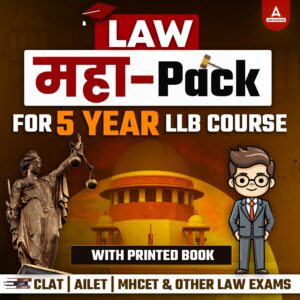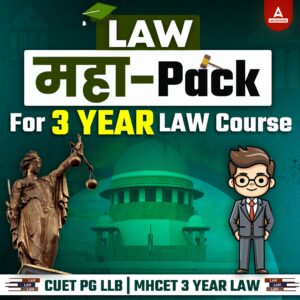CLAT Logical Reasoning Preparation: Imagine working out a puzzle in which you find every clue right in front of you – that is the CLAT Logical Reasoning. It is one of the most exciting yet tricky parts of the exam. This section tests your skills to break down arguments, find concealed patterns, and make logical deductions within a limited time. Several students consider it difficult. However, here is the truth – if you adopt the right approach, this section can turn out to be your top scorer.
Different from mathematics, no complicated formulas are needed; only your brainpower and regular practice. If you sharpen your brain, logical reasoning will be your tool for gaining a higher CLAT rank and increasing your self-esteem. Let us find out its significance along with a well-defined student-friendly 6-month preparation plan.
CLAT Logical Reasoning Exam 2026
As per the recently released notification, the Consortium of National Law Universities (NLU’s) is scheduled to conduct the CLAT (Common Law Admission Test) 2026 on December 07, 2025. The Logical Reasoning section in the CLAT exam evaluates how well students can think, analyze, and solve within a limited time. It typically includes 28–32 passage-based questions in which students must identify assumptions, draw logical conclusions, and evaluate arguments. Questions, on the other hand, mainly cover cause-and-effect, analogies, syllogisms, critical reasoning, logical riddles, and statements. This isn’t just about answering the questions; it’s about learning to think like a lawyer. It’s important in developing the analytical and decision-making skills necessary for the practice of law. Any student who has completed or is appearing in Class 12 from any stream can apply for the CLAT exam, and the best part is that there is no age limit.
CLAT 2026 Logical Reasoning Syllabus
The CLAT syllabus for the logical reasoning section checks how well students think, gauge, and fix problems fast. It deals with quick reads & gives queries on chat, base, and end. Students need to practice topics like cause-and-effect, logical puzzles, analogies, syllogisms, and critical reasoning to score well. The best part is that this section does not require formulas but sharp thinking and regular practice. Students can check the important topics for preparation below.
- Puzzles / Arrangements
- Syllogisms
- Blood Relations
- Number Series
- Coding-Decoding
- Analogies
- Statements & Assumptions / Logical Sequences
- Arguments & Conclusions / Assertions & Reasoning / Connectives / Direct Sense
- Critical Reasoning Passages
What is the Best Time to Start the CLAT 2026 Logical Reasoning Exam Prep?
The best time to start preparing for CLAT Logical Reasoning is at least 10–12 months before the exam. Logical Reasoning is not a subject you can master overnight; it needs daily practice, reading habits, and gradual development of analytical thinking.
- If you’re in Class 11 – Start now itself. You’ll have enough time to build strong fundamentals, read newspapers, and practice questions slowly without pressure.
- If you’re in Class 12 – Begin preparation at least by April–May of your Class 12 session. This gives you 6–7 months of serious preparation before the exam in December.
- If you’re a late starter (3–4 months before exam) – It’s still possible, but you’ll need to focus only on targeted practice: PYQs, mock tests, and intensive newspaper/editorial reading.
Why Early Start Matters?
The right time is the earliest possible, because Logical Reasoning is not about memorization, it’s about thinking practice. The more months you invest, the sharper your reasoning will become.
- Habit Building – Reading editorials and analyzing arguments takes time to become a natural habit.
- Concept Clarity – Understanding assumptions, inferences, and strengthening/weakening arguments can’t be rushed.
- Mock Test Analysis – You’ll have time to give mocks, analyze mistakes, and improve gradually.
- Stress-Free Prep – Starting early avoids last-minute panic and boosts confidence.
6-Month Preparation Plan for CLAT Logical Reasoning
Here’s a structured month-wise study plan to master the logical reasoning section in the CLAT (Common Law Admission Test). By following this 6-month plan, students can move from basics to mastery step by step, ensuring Logical Reasoning becomes their scoring weapon in CLAT.
Month 1 – Foundation Building
- Understand all basics: assumptions, cause-and-effect, syllogisms, analogies.
- Study from reasoning books like RS Aggarwal or CLAT material.
- Solve 10–15 reasoning questions daily.
- Read one editorial daily and write its main argument & conclusion.
Month 2 – Concept Clarity & Practice
- Focus on critical reasoning (arguments, inference, statement-assumption).
- Start solving short CLAT-based passages.
- Practice 20 questions daily.
- Take 1 sectional test per week.
Month 3 – Speed Development
- Begin timed practice for 30–35 minutes daily.
- Solve at least 25–30 questions daily.
- Focus on weak areas (like puzzles or syllogisms).
- Analyze the sectional test mistakes deeply.
Month 4 – Full-Length Exposure
- Start attempting 2 full-length mock tests per week.
- Analyze mistakes in reasoning questions separately.
- Maintain a “Reasoning Mistake Notebook” to revise common errors.
- Continue solving 20–25 reasoning questions daily.
Month 5 – Advanced Practice & Revision
- Practice advanced-level reasoning passages from the mock series.
- Revise all topics twice this month.
- Solve the previous 3–5 years’ CLAT reasoning papers.
- Attempt 3 full mocks per week.
Month 6 – Final Preparation & Polishing
- Attempt mock tests every alternate day.
- Focus only on accuracy & time management.
- Revise all notes, especially your Mistake Notebook.
- Take short sectional quizzes daily (10–15 questions).
Toppers’ Suggested Preparation Plan for CLAT Logical Reasoning Test
- Read Daily – Build a habit of reading newspaper editorials (The Hindu, Indian Express). This strengthens your ability to understand arguments and draw inferences.
- Focus on Basics – Be clear with concepts like syllogism, assumptions, conclusions, cause-and-effect, strengthening/weakening arguments. Don’t just rely on shortcuts.
- Solve PYQs – Practice past 5–7 years’ CLAT papers. This helps you identify common question patterns.
- Timed Practice – Always solve passages with a timer. CLAT passages can be lengthy, so you need both speed and accuracy.
- Make Notes – After solving each passage, write a short note about the type of question and your solving approach. These notes are gold for last-minute revision.
- Think Critically – While reading articles or news, ask yourself: What’s the author’s argument? What are the weaknesses? What could be another conclusion? This builds natural reasoning.
- Mocks + Analysis – Don’t just give mocks, analyze them deeply. Spot where you went wrong and practice those weak areas separately.
- Stay Consistent – Solve at least 1–2 passages daily. Consistency is what makes toppers stand out.
Best Books for CLAT 2026 Logical Reasoning Preparation
All the students willing to take the upcoming CLAT exam must be thinking about which book to choose for the logical reasoning section. No worries, here we have provided the list of the best books that are actually helpful in the preparation journey. Many toppers also says, M.K. Pandey + R.S. Aggarwal for basics, Universal’s/Arun Sharma for exam practice = perfect combo for CLAT Logical Reasoning.
| Best Books for CLAT 2026 Logical Reasoning Preparation | ||
| Name of the Books | Authors | Best For |
| Analytical Reasoning | M.K. Pandey | One of the most trusted books for law aspirants. It explains concepts clearly and gives a variety of practice questions on puzzles, assumptions, and inferences |
| A Modern Approach to Logical Reasoning | R.S. Aggarwal | A complete book that covers both verbal and non-verbal reasoning. Great for building a strong foundation with plenty of solved and unsolved questions. |
| Verbal & Non-Verbal Reasoning | R.S. Aggarwal | Helps in improving both text-based and visual reasoning. A good add-on for extra practice |
| Universal’s Logical Reasoning for CLAT, LSAT & Other Law Exams | Prateek Jain | Specially designed for law entrances. It gives practice in the same style as CLAT exam questions. |
| Logical Reasoning | Arun Sharma | Known for its detailed explanations and wide coverage of reasoning topics. Very helpful for practice. |
| A New Approach to Verbal & Analytical Reasoning | Arihant Publications | A balanced book that includes different types of reasoning questions, making it useful for revision. |

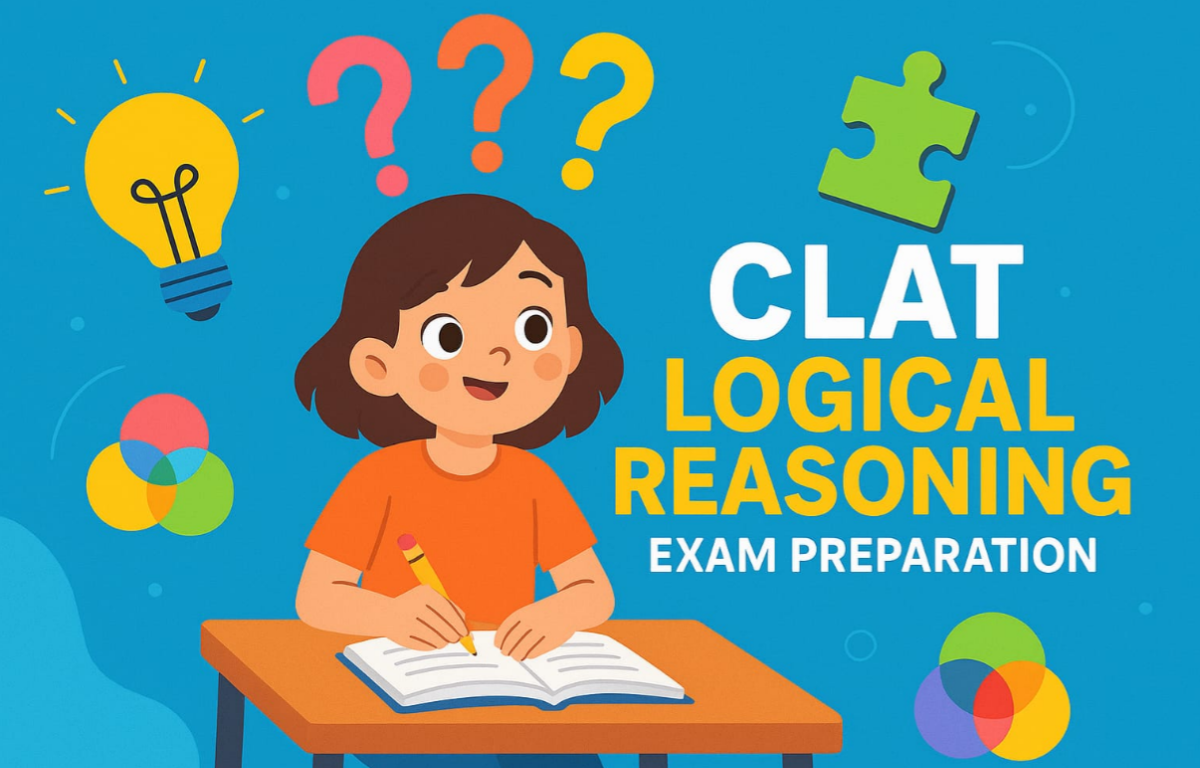
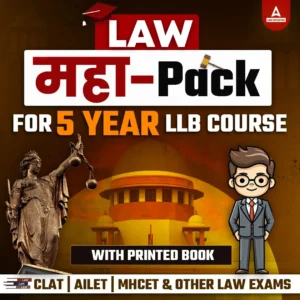
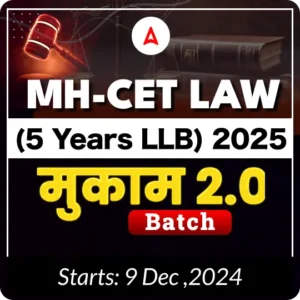







 CLAT Previous Year Question Papers, Down...
CLAT Previous Year Question Papers, Down...
 CLAT 2026 UG Syllabus (Latest), Download...
CLAT 2026 UG Syllabus (Latest), Download...
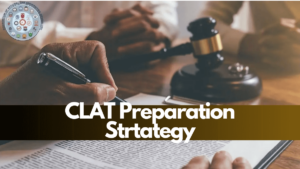 CLAT Preparation Strategy for Beginners:...
CLAT Preparation Strategy for Beginners:...
